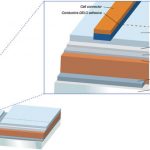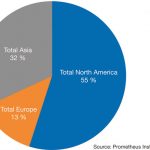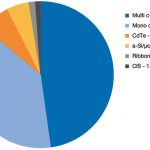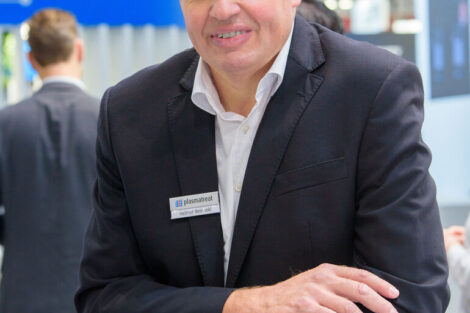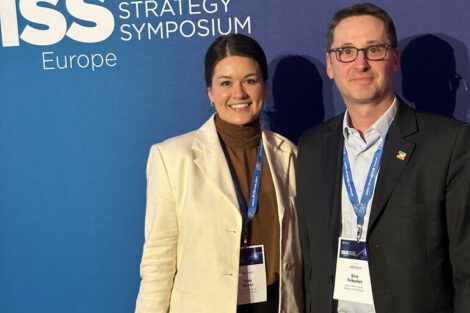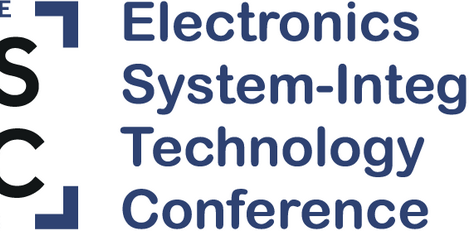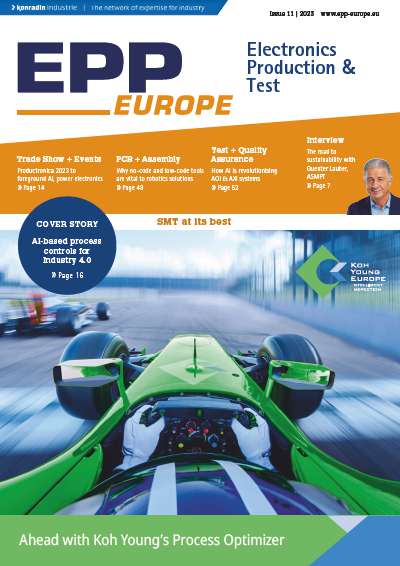Thin-film technology is high in demand as it promises cost advantages and already provide excellent results while reaching acceptable efficiencies. By 2010 the market share of thin-film cells is expected to be 20 % of the global photovoltaics market. More and more conductive adhesives are being used in production replacing soldering as joining method.
Dr. Martin Kluke, Product Manager, Delo Industrial Adhesives, Windach, Germany
A considerable growth could be observed in global solar cell production between 1999 and 2007, namely from a total power of 202 megawatt in 1999 to 4,279 megawatt in 2007 (1). The innovation potential is still unbroken, as well. Already for a longer period of time, crystalline silicon cells are available in the market. Indeed, the independent market research and consulting agency Lux Research Inc. (Boston, Massachusetts) expects that crystalline silicon cells (“thin-film cells”) will still continue their dominant role in the photovoltaics market in 2009. However, the market researchers also believe that the competitive thin-film technology based on copper-indium-(gallium)-diselenide – simply called CI(G)S – amorphous silicon or cadmium telluride will grow significantly (2). On the one hand, it partly produces higher yields, for example, at high temperatures or diffuse lighting conditions. On the other hand, it is considered as being the technology with the greatest potential for cost reduction. In preindustrial CIS solar cells already reach efficiencies of 20 %. Recently, the Centre for Research into Solar energy and Hydrogen Research (ZSW) in Stuttgart achieved efficiencies of 19.6 % with its CIS cells in a preindustrial production line. That makes CIS keep up with the efficiency range of crystalline photovoltaic products. These cells made of multicrystalline silicon, which are currently holding the highest market share, reach efficiencies of 20.3 % in the lab (3).
The EPIA (European Photovoltaic Industry Association) forecasts that by 2010 thin-film cells will reach a capacity of four gigawatt and a market share of 20 %, which corresponds to a doubling over 2007 (4). For CIS and thin-film silicon are about to make their breakthrough according to experts.
Cost advantages by thin-film technology
Currently, nearly 200 companies are producing thin-film module or are working on it, says Arnulf Jäger-Waldau, the energy expert of the EU commission. One of those who is riding on the wave of success is the American company First Solar that produces cadmium telluride modules for US$ 0.93 per watt by their own account –as cheap as no other company does (5). What is disadvantageous is that the CdTe modules currently produce efficiencies of at most only 11.1 percent. Therefore, the area they require to generate the same quantity of electricity like standard silicon modules is much larger.
In thin-film technology, photoactive semiconductors are applied in large and thin layers to a carrier material as known from display technology. Cell manufacturers use cheap substrates like glass, metal foils or plastic films as carrier materials. They do not only cut raw material costs, but also consume less energy in production. Thin-film modules require clearly lower production temperatures than crystalline solar cells. One further advantage is that production can be automated as the production units of a thin-film module are larger than the area of a silicon wafer. Therefore, the production of thin-film modules is more economical. However, the development towards large-area, very thin and partly flexible cell structures requires alternative joining methods: The soldering methods particularly used for crystalline silicon cells go along with thermal stress that could lead to microcracks and, as a consequence, a drop in power. In the worst case, the module suffers a complete loss of power.
Adhesives as connection element in production
In the course of the advancement of thin-film cells, adjusting and optimizing the joining method is relevant to bring costs down. Conductive adhesive can make a valuable contribution. During soldering, it is often that temperatures of more than +200 °C are required and flux material must be applied. On the contrary, conductive adhesives require temperatures of at most only +150 °C for curing and no additional process steps. Moreover, the design engineers of thin-film cells have much more freedom in the development, especially in the material selection, than when using soldering techniques. They can use temperature-sensitive plastics and adhesives for cell contacting especially optimized for solar cells.
Another advantage of adhesives: So far, separate contacting and lamination steps have been required due to the high soldering temperatures and the temperature sensitivity of the encapsulation films. But as the temperature required for laminating the encapsulation films corresponds to the curing temperature of the adhesive, contacting and lamination of the cells in one step (single shot process) is imaginable. Furthermore, with bonding no lead-containing substances must be used. Delo targets the development of conductive adhesives for the different thin-film surfaces. Thus, it can supply tailor-made solutions for interested companies. Delo’s contacting tests of thin-film cell surfaces with conductive adhesives and subsequent storage under temperature and humidity (85 °C / 85 % r. h.) prove the efficiency of the newly developed adhesives. The general contact resistance values after storage are stable and low even without encapsulation. Delo also conducts technical tests according to DIN EN 61646 (Thin-film terrestrial photovoltaic modules with silicon solar cells – design qualification and type approval). Consequently, electrically conductive adhesives are an efficient and reliable method to contact thin-film cells.
EPPE 431
Delo: Successful management buy-out
Delo is a medium-sized company managed by the two owners, Dr. Wolf-Dietrich Herold and Sabine Herold. Wolf-Dietrich Herold manages the sectors Research & Development, Finance and Administration and Production. Sabine Herold is responsible for Delo’s engineering, product management, marketing and sales department. Before Wolf-Dietrich Herold and his wife took over the company in 1997 in the course of a management buy-out, he had been the Managing Director of Espe Dental and Delo for many years. Sabine Herold started working at Delo after finishing her studies in chemical engineering in 1989. Before getting into Management she was head of engineering, marketing and the sales department.
Delo looks back on a long tradition in intelligent bonding technology, from the founding of the company in 1961. „That gives us expert knowledge, and the ability to anticipate customer needs and stay ahead of the curve. Our experienced engineers work with our customers to find the solution best suited to your particular challenge“, Sabine Herold says.
„Innovations are crucial for a company’s success. Therefore, we invest a high share of our turnover in R&D. We convince our customers by offering effective products“, says Dr. Wolf-Dietrich Herold.
Share:


